I learned this treasured Bangus sa Tausi recipe from my cousin Ate Dimple just weeks before she left for her new life in Sweden, and it has become my ultimate comfort food hack ever since.
I watched her transform leftover fried bangus into this mouthwatering dish, but I never thought to ask for the recipe until her departure was near.
Now every time I make this, letting the fermented black beans and sweet tomatoes simmer into a rich sauce that coats each piece of milkfish, I'm reminded of those precious moments in her kitchen.
It's amazing how a simple dish that started as a practical way to avoid food waste has become one of my most cherished family recipes.
If you're looking for a way to elevate your leftover fried bangus or simply want to try something that perfectly captures the resourceful spirit of Filipino home cooking, this bangus sa tausi recipe needs to be in your arsenal.
Jump to:
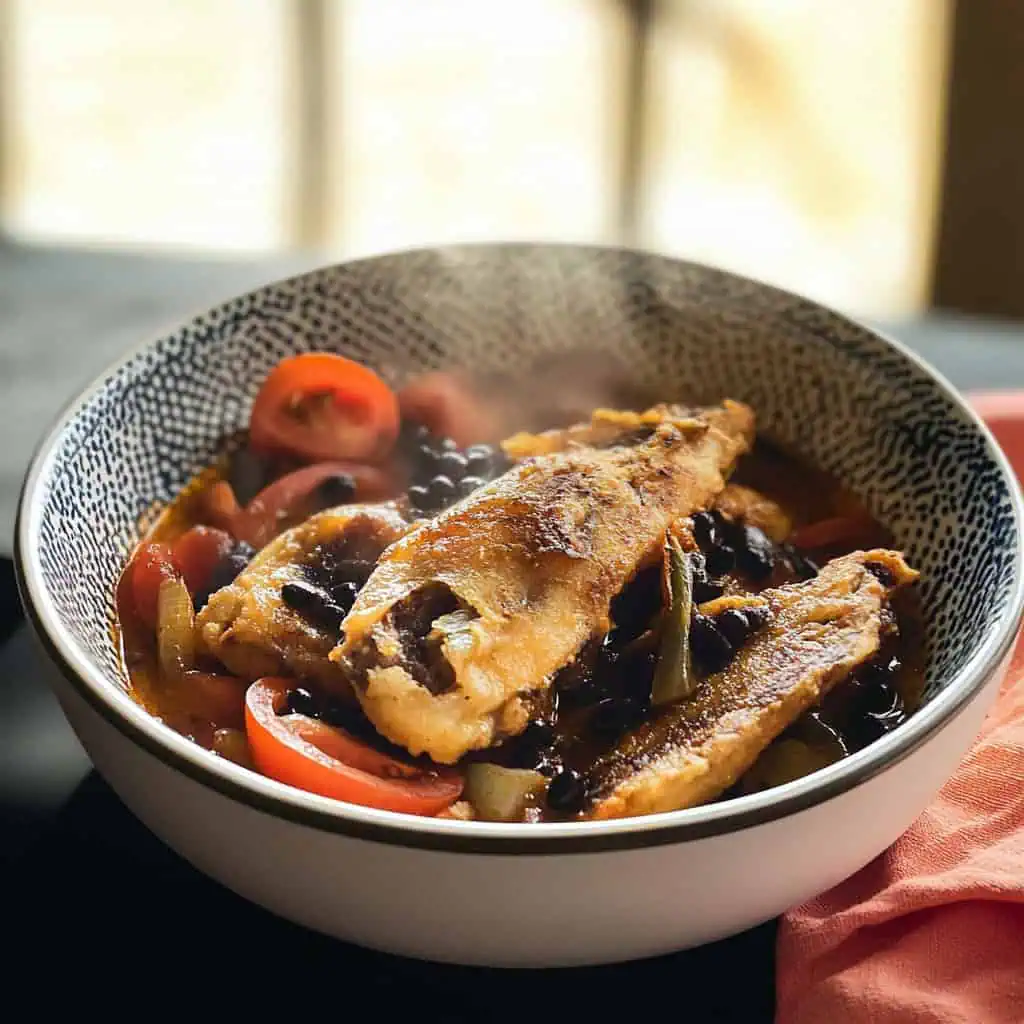
Why You'll Love This Recipe
- Transforms leftover fried fish into an entirely new, flavorful dish
- Uses simple, accessible ingredients found in most Filipino kitchens
- Perfect balance of savory and umami flavors from tausi (fermented black beans)
- Ready in just 30 minutes for a quick weeknight dinner
- Budget-friendly and reduces food waste
- Versatile recipe that works with various types of fish
Ingredients
This recipe combines ingredients with purpose and tradition. Bangus (milkfish) is chosen for its delicate, sweet flesh that absorbs flavors beautifully. Fermented black beans (tausi) provide the distinctive umami depth that defines this dish, while Roma tomatoes add natural sweetness and acidity to balance the salty beans.
The aromatic trio of onion, garlic, and ginger creates a flavorful base, and fish sauce enhances the seafood character without overpowering it. Together, these ingredients create a perfect harmony of flavors that transform simple fish into an extraordinary meal.

For the Fish:
- 1 whole bangus (milkfish), scaled, gutted, and cut into serving parts
- ½ cup all-purpose flour
- Salt and pepper to taste
- Canola oil for frying
For the Sauce:
- 1 medium onion, peeled and sliced
- 2 cloves garlic, peeled and minced
- 1 thumb-sized ginger, julienned
- 2 large Roma tomatoes, chopped
- 1 tablespoon fish sauce
- 1 cup water
- 1 can (6.3 ounces) tausi (fermented black beans), drained and rinsed
Equipment
- Large non-stick pan or kawali (Filipino wok): For frying fish and cooking the sauce. The non-stick surface helps prevent the delicate fish from breaking apart.
- Sharp knife and cutting board: For preparing ingredients precisely, especially important when cutting the bangus into serving pieces.
- Spider strainer or tongs: For safely handling and flipping the fish while frying without damaging it.
- Measuring cups and spoons: For accurate measurements to ensure balanced flavors.
- Paper towels: For draining excess oil from the fried fish, helping to achieve the perfect texture.
- Small bowls: For organizing prepared ingredients (mise en place) to make the cooking process smoother.
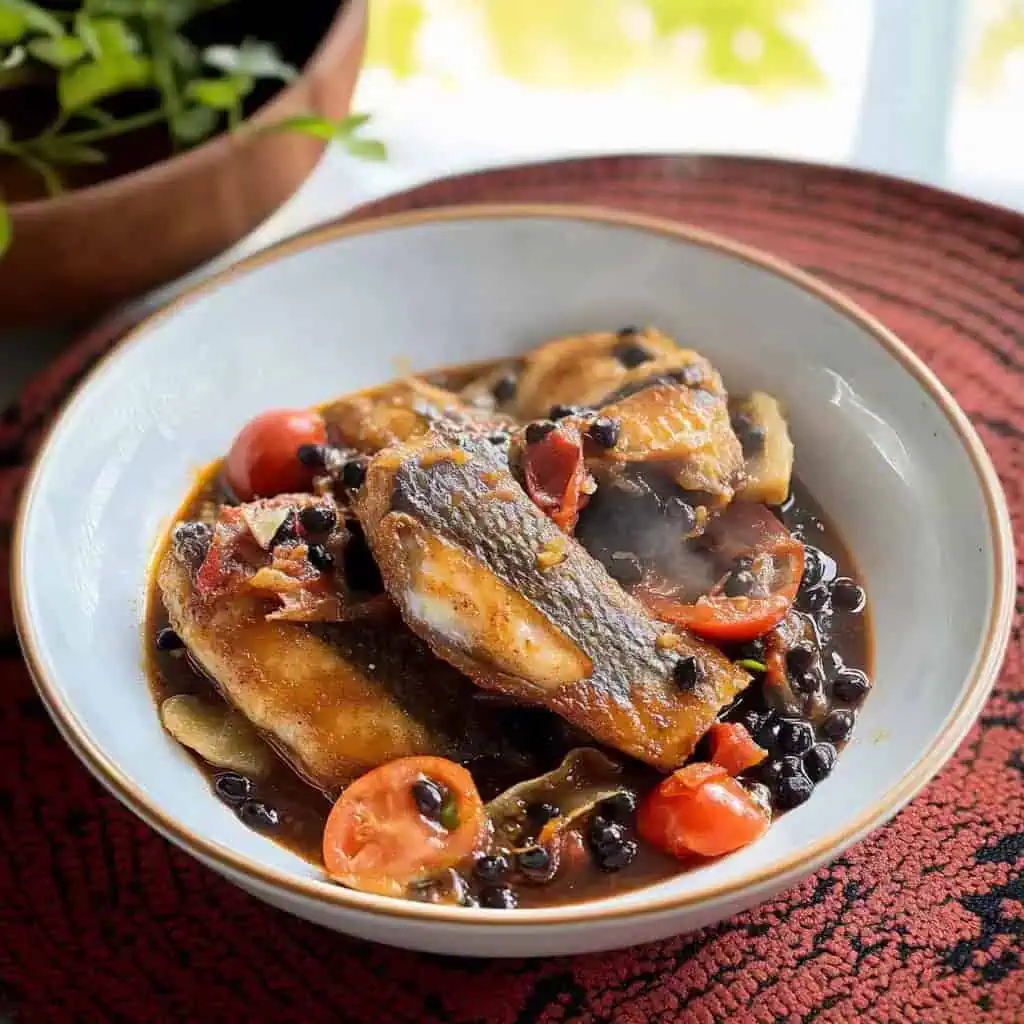
How To Make
- Clean your bangus and pat it dry with paper towels. Mix flour, salt, and pepper in a shallow dish to make your coating.
- Season your fish pieces with salt and pepper, then coat each piece in the seasoned flour. Shake off any extra flour.
- Heat oil in a large pan over medium-high heat until hot. The oil should be about one inch deep. Fry the fish for 3-4 minutes on each side until golden brown but not fully cooked. Place on paper towels to drain.
- Heat one tablespoon of oil in a clean pan over medium heat. Cook the sliced onions until they turn translucent, about 2 minutes. Add the garlic and ginger, cooking until fragrant.
- Add the chopped tomatoes to the pan. Press them gently with your spoon as they cook to help release their juices. Cook for 3-4 minutes until the tomatoes soften.
- Add the fish sauce and let it cook for a minute. Pour in one cup of water and bring to a gentle simmer. Add your rinsed black beans and stir gently. Let this cook for 3-5 minutes until the sauce thickens slightly.
- Carefully place your fried fish in the pan. Spoon the sauce over the fish pieces. Lower the heat and let everything cook together for 3-5 minutes, or until the fish is fully cooked and covered with sauce. Try not to stir too much – instead, just spoon the sauce over the fish.
- Taste the sauce and adjust with salt and pepper if needed. If it's too thick, add a little water. Serve your Bangus sa Tausi hot with steamed rice, making sure to spoon plenty of sauce over both.

Tips from Lola's Kitchen
- Thoroughly rinse the tausi before cooking to control saltiness and remove any preservatives.
- Score the bangus skin with diagonal cuts before frying for even cooking and to help the sauce penetrate.
- Fry in small batches to maintain oil temperature for perfectly crisp fish exteriors.
- Keep the sauce slightly loose as the fish will absorb some liquid as it sits.
- For extra tang, squeeze half a calamansi over the dish just before serving.
- Use day-old fried bangus for better texture and flavor absorption.
- When frying the fish, wait until the oil is properly hot before adding the fish to prevent sticking.
- Let the sauce reduce slightly before adding the fish for more concentrated flavors.
Substitutions
- Fish options: Galunggong (mackerel scad), tilapia, or dalagang bukid (yellowtail fusilier) work well as alternatives to bangus.
- Tausi substitute: Black bean sauce can be used, but reduce the amount as it's more concentrated. Adjust salt accordingly.
- Fish sauce alternative: Light soy sauce (1 teaspoon) or salt (½ teaspoon) can replace fish sauce.
- Fresh tomatoes alternative: 1 cup canned diced tomatoes, drained of excess liquid.
- Canola oil substitute: Any neutral cooking oil like vegetable, corn, or rice bran oil.
- Onion substitute: 2 large shallots, thinly sliced.
- Ginger substitute: ½ teaspoon ground ginger, though fresh is strongly preferred.
Troubleshooting
- Fish falls apart: Ensure fish is not overcooked during the initial frying stage. Keep the heat medium when simmering in sauce, and handle fish gently with a spatula.
- Too salty: Add more chopped tomatoes or a teaspoon of sugar to balance the saltiness. A splash of water can also help dilute the sauce.
- Too dry: Add water gradually, 2 tablespoons at a time, until desired consistency is reached.
- Sauce too thin: Simmer uncovered for an additional 3-5 minutes to reduce, or add ¼ teaspoon cornstarch dissolved in 1 tablespoon water.
- Fish sticking to pan: Ensure proper flour coating before frying and maintain correct oil temperature (around 350°F/175°C).
- Bland sauce: Add another ½ tablespoon of fish sauce or ¼ teaspoon salt, and increase ginger for more depth.
Storage & Reheating
- Refrigeration: Store in an airtight container for up to 3 days. Separate fish and sauce if possible to maintain fish texture.
- Reheating on stovetop: Place in a pan over medium-low heat with a splash of water to reconstitute the sauce. Cover and heat for 5-7 minutes until warmed through.
- Microwave reheating: Heat in 1-minute intervals at 70% power, covered with a microwave-safe lid or paper towel to prevent splattering.
- Not recommended for freezing as the fish texture deteriorates significantly when thawed.
- Best served fresh within 24 hours of cooking for optimal flavor and texture.
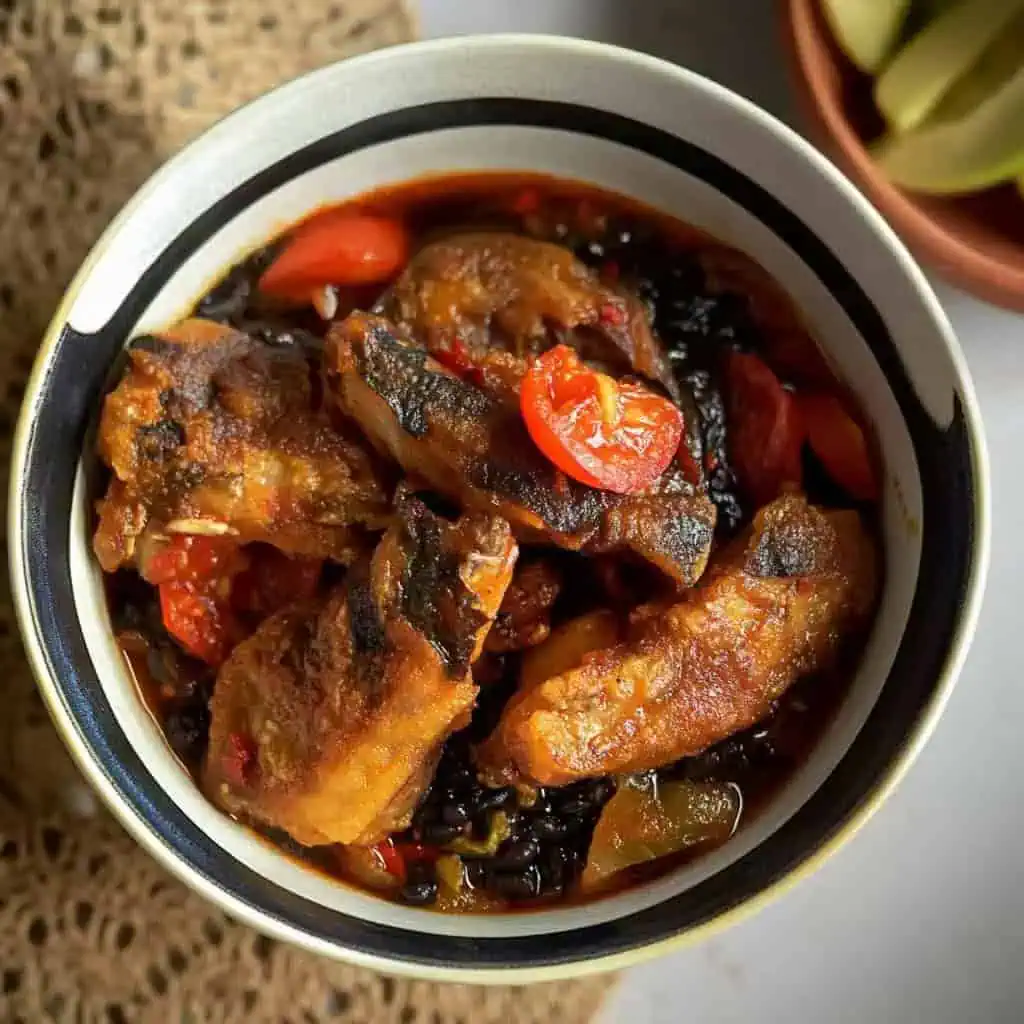
FAQ
Can I use leftover fried fish?
Yes, leftover fried fish works perfectly and is actually traditional. Simply skip the frying steps and add your leftover fish directly to the sauce.
How do I prevent the fish from breaking apart?
Handle the fish gently with a wide spatula, avoid excessive stirring, and keep the initial frying time shorter to maintain some firmness.
Is tausi very salty?
Yes, fermented black beans are quite salty. Rinse them well in a fine-mesh strainer before using to control the saltiness level.
Can I make this in advance for a party?
While best served fresh, you can prepare it up to 4 hours ahead. Reheat gently over low heat with a splash of water to refresh the sauce.
How do I know when the fish is fully cooked?
The flesh should be opaque and flake easily with a fork. For bangus, the meat should easily separate from the central bone.
What's the best way to clean bangus before cooking?
Remove scales, gut the fish, and rinse thoroughly in cold water. Pat dry completely before seasoning.
Can I use this sauce for other proteins?
Absolutely! This sauce works wonderfully with tofu, chicken, or even pork. Adjust cooking times accordingly.
Is this dish gluten-free?
Not as written. For a gluten-free version, replace all-purpose flour with rice flour or cornstarch for coating, and ensure your fermented black beans don't contain wheat products.
Related
Looking for other recipes like this? Try these:
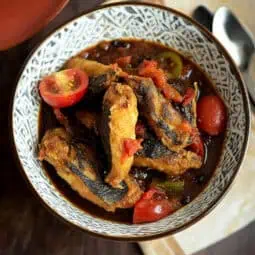
Bangus sa Tausi (Milkfish with Black Beans and Tomatoes)
Equipment
- Large non-stick pan or kawali (Filipino wok) for frying fish and cooking the sauce
- Sharp knife and cutting board for preparing ingredients
- Spider strainer or tongs for handling the fish
- Measuring cups and spoons for precise measurements
- Paper towels for draining excess oil
- Small bowls for ingredient preparation (mise en place)
Ingredients
For the Fish
- 1 whole bangus milkfish, scaled, gutted, and cut into serving parts
- ½ cup all-purpose flour paminta sa pagmamasa
- Salt and pepper to taste
- Canola oil for frying
For the Sauce
- 1 medium onion peeled and sliced (sibuyas)
- 2 cloves garlic peeled and minced (bawang)
- 1 thumb-sized ginger julienned (luya)
- 2 large Roma tomatoes chopped (kamatis)
- 1 tablespoon fish sauce patis
- 1 cup water tubig
- 1 can 6.3 ounces tausi (fermented black beans), drained and rinsed
Instructions
- First, clean your bangus and pat it dry with paper towels. Mix flour, salt, and pepper in a shallow dish to make your coating.
- Season your fish pieces with salt and pepper, then coat each piece in the seasoned flour. Shake off any extra flour.
- Heat oil in a large pan over medium-high heat until hot. The oil should be about one inch deep. Fry the fish for 3-4 minutes on each side until golden brown but not fully cooked. Place on paper towels to drain.
- Heat one tablespoon of oil in a clean pan over medium heat. Cook the sliced onions until they turn clear, about 2 minutes. Add the garlic and ginger, cooking until you can smell their aroma.
- Add the chopped tomatoes to the pan. Press them gently with your spoon as they cook to help release their juices. Cook for 3-4 minutes until the tomatoes soften.
- Add the fish sauce and let it cook for a minute. Pour in one cup of water and bring to a gentle simmer. Add your rinsed black beans and stir gently. Let this cook for 3-5 minutes until the sauce thickens slightly.
- Carefully place your fried fish in the pan. Spoon the sauce over the fish pieces. Lower the heat and let everything cook together for 3-5 minutes, or until the fish is fully cooked and covered with sauce. Try not to stir too much – instead, just spoon the sauce over the fish.
- Taste the sauce and add salt and pepper if needed. If it's too thick, add a little water. Serve your Bangus sa Tausi hot with steamed rice, making sure to spoon plenty of sauce over both.
- Remember: Don't skip rinsing the black beans before cooking, and handle the fish gently to keep it from breaking apart. Your sauce should be thin enough to spoon over rice but thick enough to coat the fish.
Tips from Lola's Kitchen
- Rinse tausi thoroughly to control saltiness
- Score the bangus before frying for even cooking
- Don't overcrowd the pan when frying to maintain oil temperature
- Keep the sauce slightly loose as the fish will absorb some liquid
- Add siling labuyo (bird's eye chili) for extra heat
- Use day-old fried bangus for better texture
Nutrition
The Story Behind Bangus sa Tausi
Bangus sa Tausi represents the beautiful marriage of Filipino resourcefulness and Chinese culinary influence in everyday home cooking. This dish emerged from the practical Filipino tradition of transforming leftover fried fish into new, exciting meals, combined with the use of tausi (fermented black beans) - a treasured ingredient that Chinese traders brought to Philippine shores centuries ago.
In many Filipino households, particularly in coastal regions where bangus (milkfish) is abundant, families would often fry more fish than needed for one meal. Rather than simply reheating leftover fried bangus, innovative home cooks began experimenting with ways to reinvent these leftovers. The addition of tausi, along with native ingredients like fresh tomatoes and local aromatics, created a dish that perfectly balances Filipino taste preferences with Chinese-inspired flavors.
The dish gained popularity in regions like Pangasinan and Dagupan, areas famous for their milkfish production, where it became a practical solution for fishmongers and households alike to repurpose day-old fried bangus. What started as a humble leftover dish has evolved into a beloved recipe that many Filipinos now prepare from scratch, often not waiting for leftovers to enjoy this flavorful creation.
Today, Bangus sa Tausi stands as a testament to Filipino culinary ingenuity, showcasing how our ancestors adapted foreign ingredients into our local cuisine. This dish continues to be passed down through generations, with each family adding their own twist while maintaining the core elements that make it distinctively Filipino-Chinese. Whether served for family lunches, afternoon merienda, or simple weeknight dinners, this dish exemplifies the Filipino talent for creating something extraordinary from simple, available ingredients.
The lasting popularity of Bangus sa Tausi also speaks to the Filipino palate's love for saucy dishes that pair perfectly with steamed rice. Its combination of savory, umami-rich flavors from the fermented black beans, the natural sweetness of tomatoes, and the delicate taste of milkfish creates a harmony that keeps people coming back for more, making it a staple in modern Filipino home cooking.
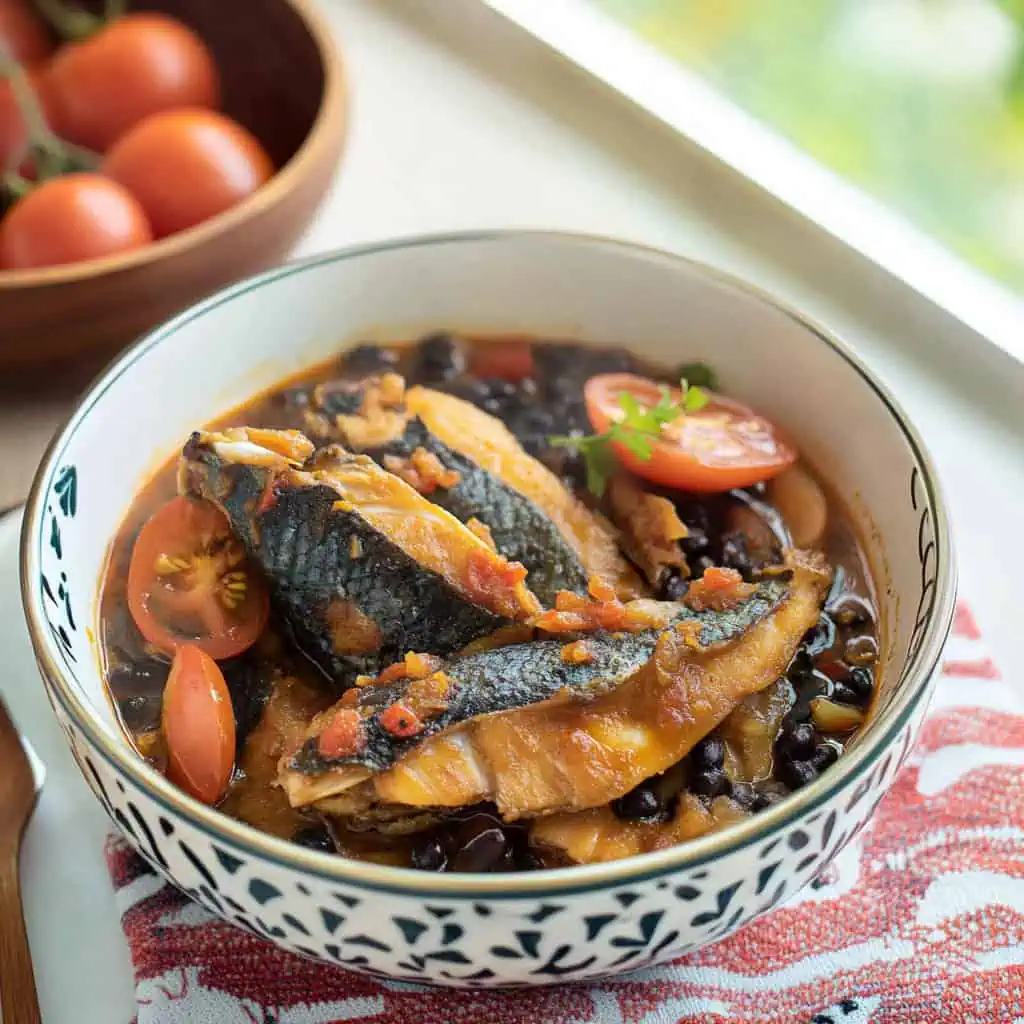

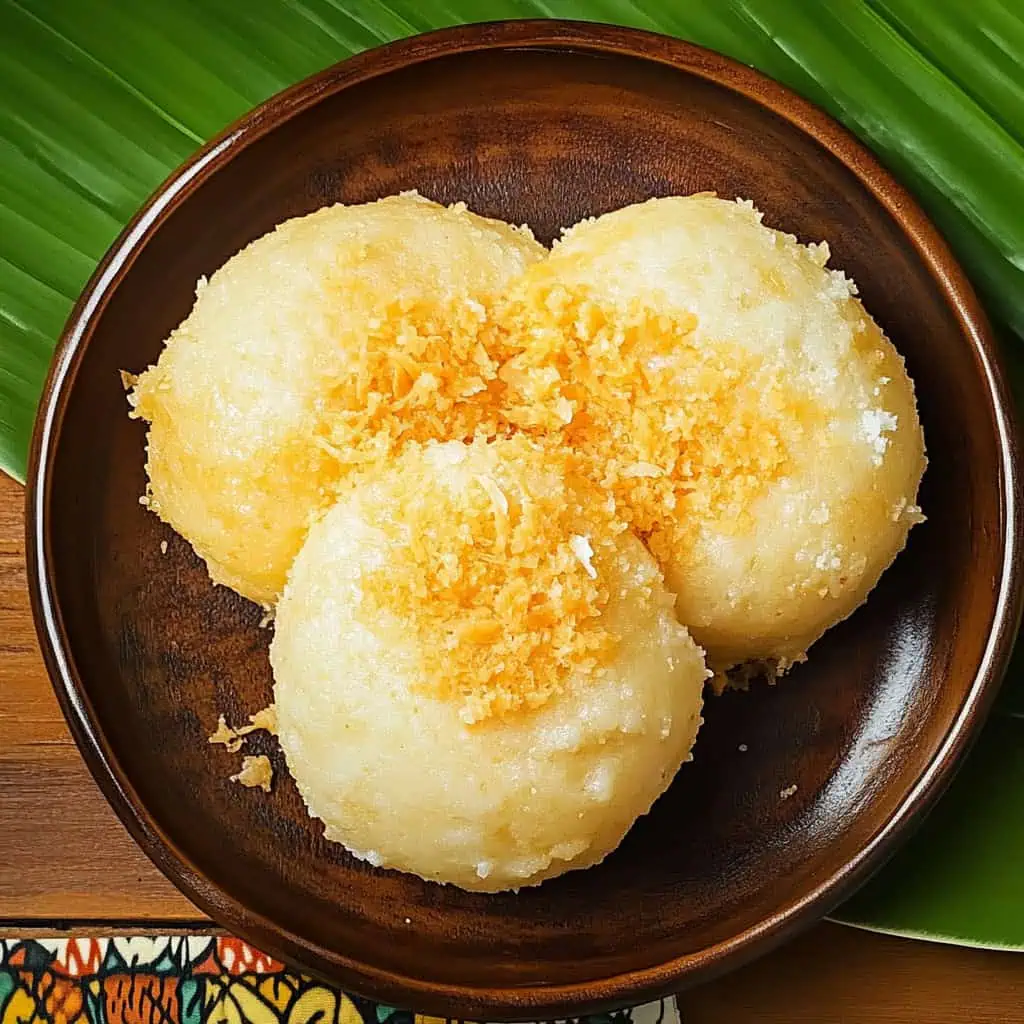
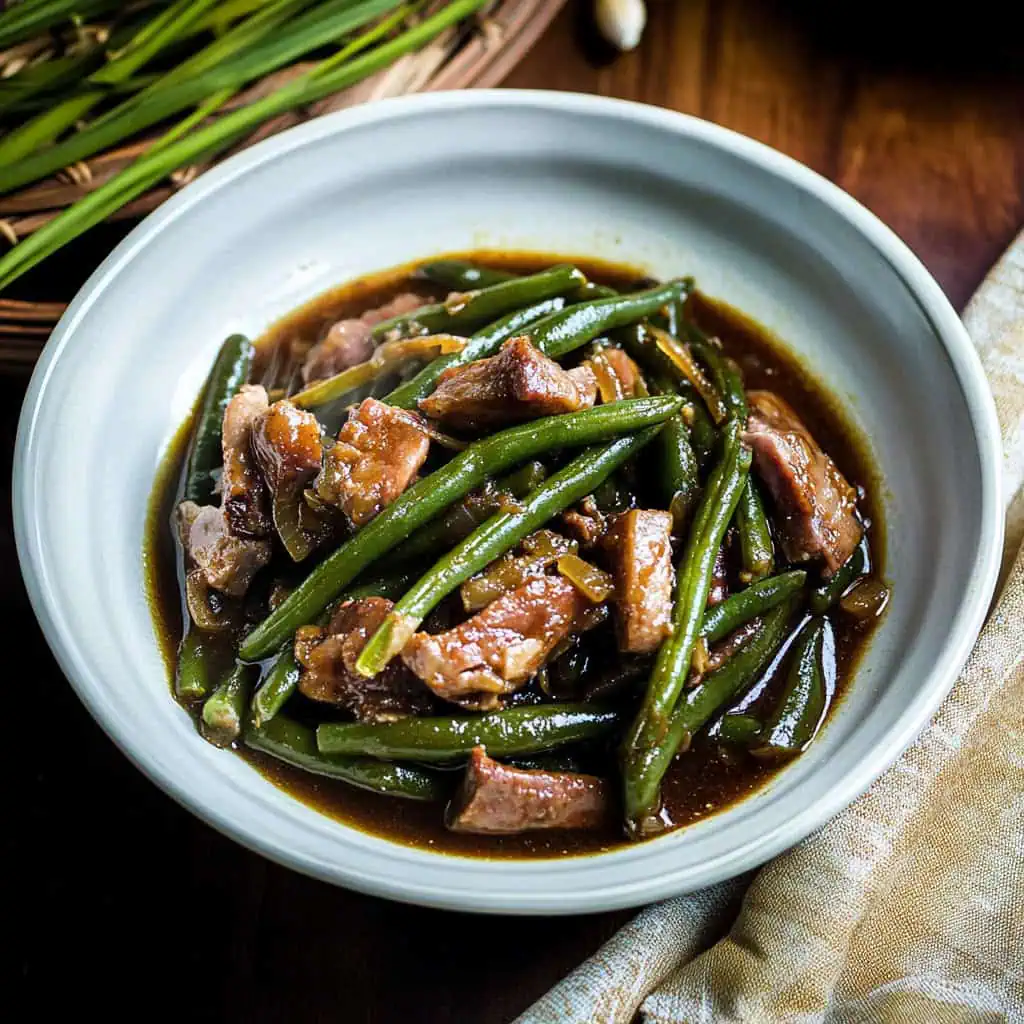

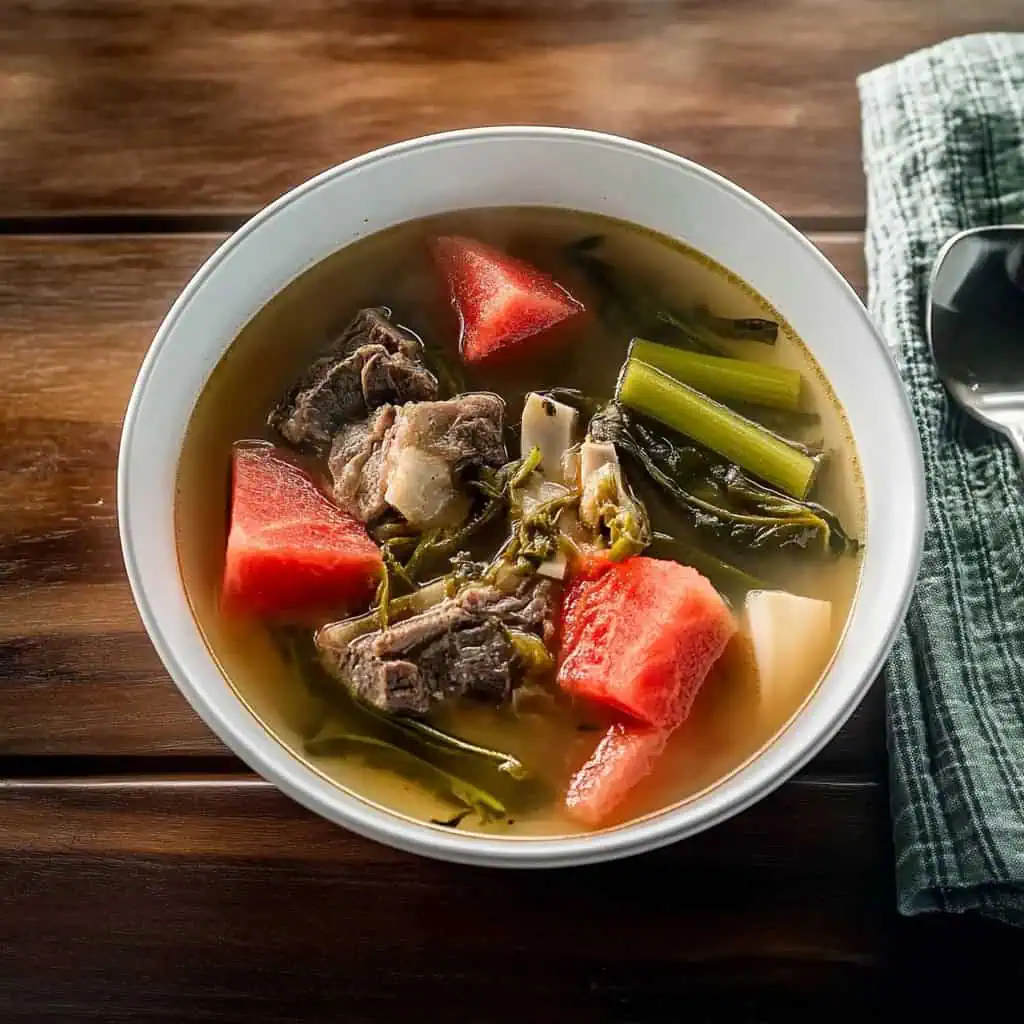




Comments
No Comments